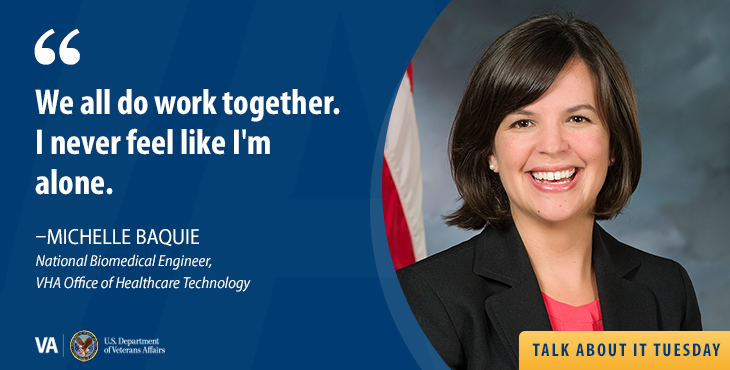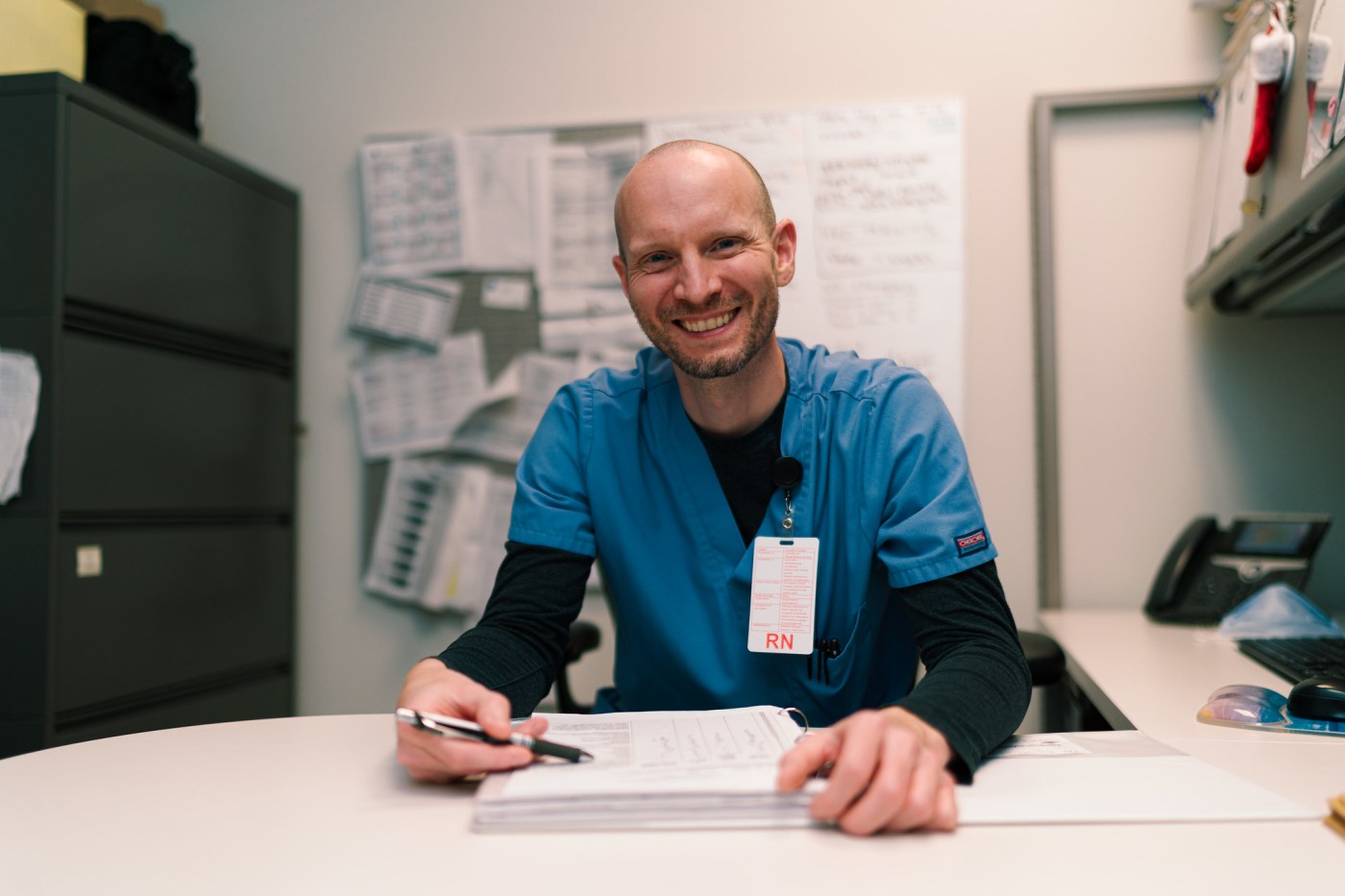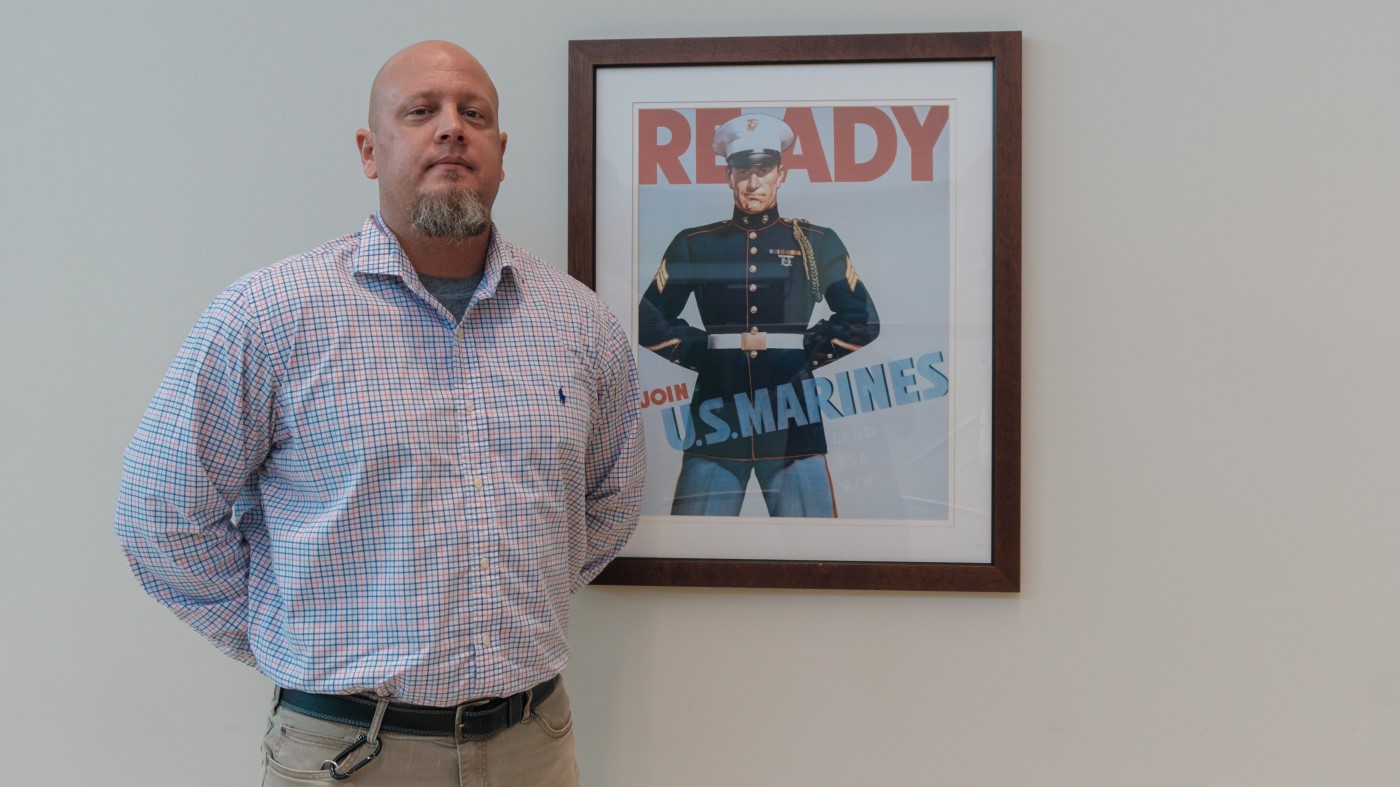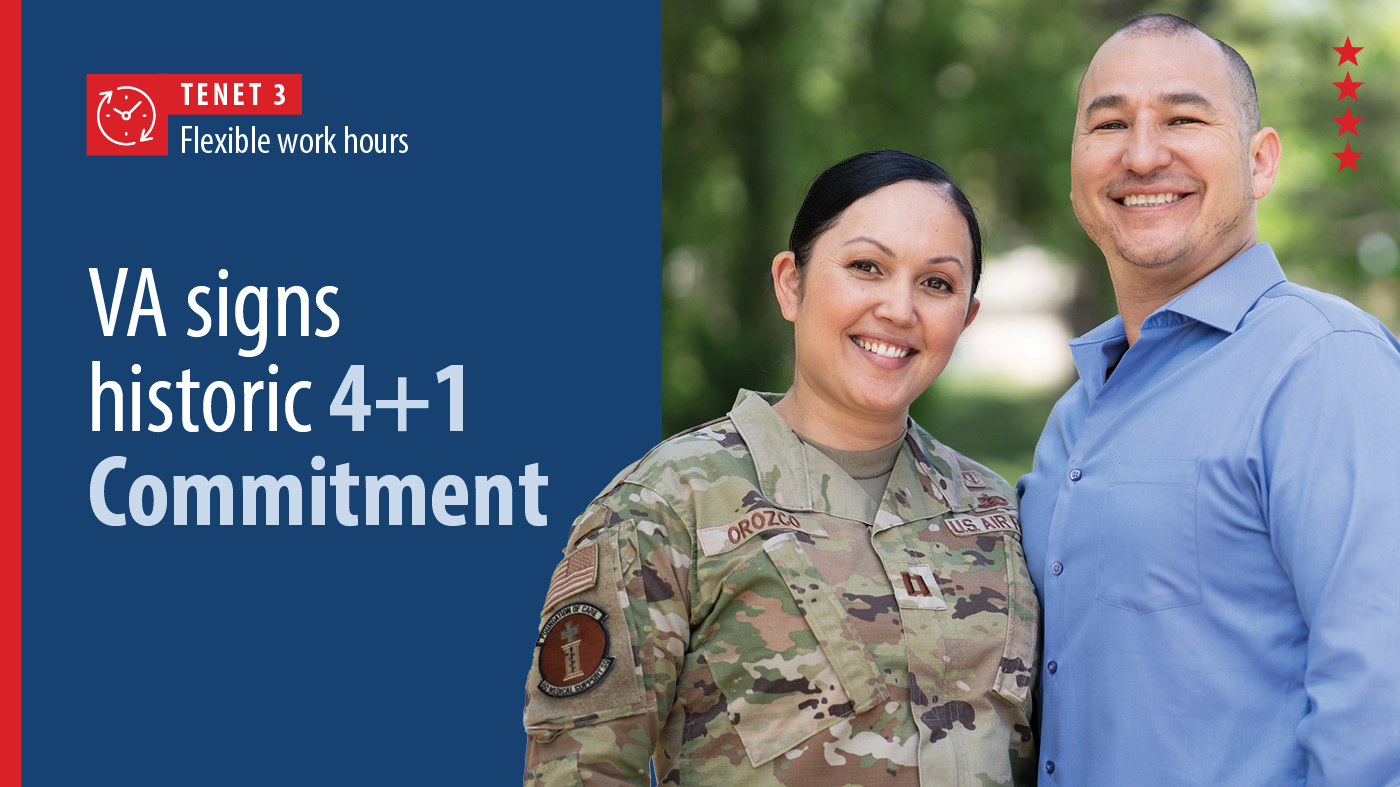“We have so much more than I ever realized,” said Michelle Baquie, one of the national biomedical engineers with VA’s Office of Healthcare Technology Management, as she described the role engineers play at VA.
Baquie, who has worked at VA for 17 years, recently visited with us during a special “Talk About It Tuesday” segment to discuss her career and how you also can work as an engineer at VA. This weekly career broadcast airs live on LinkedIn each Tuesday at noon ET.
The role of a biomedical engineer
A biomedical engineer, Baquie explained, is a career field that mixes engineering concepts with biological sciences like chemistry, anatomy and physiology, and biology. By merging the disciplines, a biomechanical engineer can manage the equipment that is used in VA’s 150 medical centers around the country.
“Everything from a thermometer or a scale to the linear accelerator for treating cancer” falls under the purview of a biomedical engineer, she said.
Biomedical engineers can also take advantage of many career paths within VA. You can progress to a supervisory role – moving into project management, overseeing equipment throughout the hospital, and incorporating fiscal responsibilities and human resources interactions as you manage the safe and effective use of the equipment.
You can then scale upward to regional or even national levels, where you focus on managing equipment for multiple hospitals.
Branching outward
You can also find a place at VA under different biomedical specialties. Network engineers, for example, focus on protecting information and making sure patient data is available across the system. Rehabilitation engineers work with patients and devise engineering solutions to medical problems.
Engineering is also a broad umbrella at VA. Civil, mechanical, environmental, and even fire/safety engineers are all needed throughout our facilities. Interestingly enough, Baquie said those with engineering degrees often cross paths, so someone who starts out in one specialty could very well move into another field of expertise if they so wished.
“We can find a spot for you and give you the tools you need,” Baquie said, stressing that it all starts with an engineering degree from an ABET-accredited university.
People make it positive
For Baquie, it’s the people she meets with, whether as patients or coworkers, that have become the best part of her experience at VA. She has seen the excitement of Veterans sharing their stories with one another, but has also experienced the strength of being part of a team at VA.
“There are 300 biomedical engineers across the country, and we all do work together,” she said. “I never feel like I’m alone.”
Work at VA
Whether you’re a new graduate or an experienced professional, there’s room for you to grow your engineering career with VA.
- WATCH Michelle Baquie’s Q&A.
- EXPLORE career opportunities at VA.
- LEARN about the benefits of a VA career.
- CATCH us on “Talk About It Tuesday.”
Topics in this story
More Stories
There’s a time and a place (and a way) to reach out to recruiters during the application process. Find out the best way to reach out with our helpful tips.
Even as we serve Veterans, we want Veterans like you to join our team, because you understand the value of serving those who served.
VA is implementing the historic 4+1 Commitment to attract, hire, and retain military spouses. Learn more about this commitment and a key tenet, VA’s commitment to flexible work hours for military spouses.






